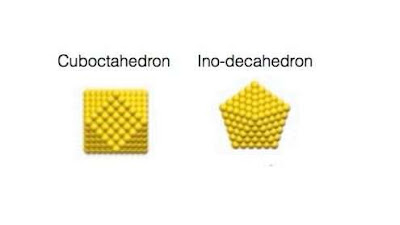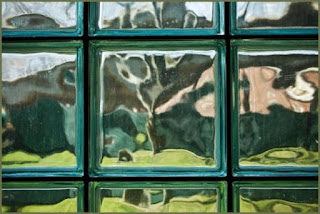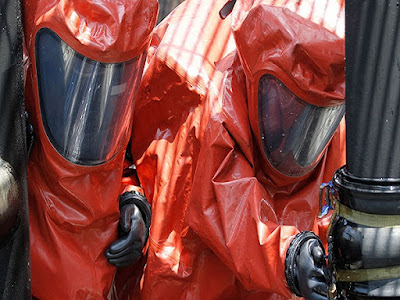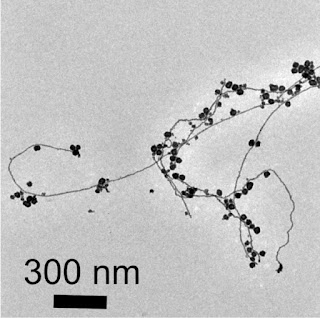How do very small particles behave
at very high temperatures?
The two elective
designs of the gold nanoclusters containing 561 atoms. Credit: Swansea
University
The two elective
designs of the gold nanoclusters containing 561 atoms. Credit: Swansea
University
Full story:
The exploration is
vital to the building area for some potential uses of nanotechnology, for
instance in catalysis and aviation, where particles of just nanometer
measurements are subjected to high temperatures.
The aftereffect of the
examination, which was a 3-route joint effort between Birmingham, Swansea and
Genoa University's, was distributed for this present week in the diary Nature
Communications. The examination demonstrated that gold nanoparticles of
correctly chose measure (561 molecules ±14) are strikingly powerful against
dissemination and conglomeration however their interior nuclear courses of
action do change.
The specialists
utilized an ultra-stable, variable-temperature organize in an abnormality
redressed examining transmission electron magnifying instrument to subject a
variety of size-chose gold nanoparticles (or bunches) to temperatures as high
as 500 °C while imaging them with nuclear determination. The particles were
stored from a nanoparticle source onto thin movies of silicon nitride or
carbon.
The
two elective models of the gold nanoclusters
containing 561 particles
The analyses
demonstrated that official of the gold nanoparticles to the surface, at point
absconds, demonstrated adequately solid to settle them, even at the highest
point of the temperature extend. Be that as it may, the nuclear structures of
the bunches varied under the warmth treatment, exchanging forward and backward
between two principle molecule designs ("isomers"): these were a
face-focused cubic structure, like a little bit of mass gold, and a decahedral
game plan with a symmetry illegal in a broadened precious stone. The specialists
were even ready to gauge the little contrast in vitality (just 40 meV) between
these two diverse nuclear structures.
Richard
Palmer, pioneer of the Nanomaterials Lab in Swansea University's College of
Engineering, commented: "These impelled tests have empowered us to make
estimation for nanoparticles saved money on a surface - the refinement in
essentials between two fighting atomic courses of action. It's something that
the all-inclusive communities who use PCs to determine the properties of
Nanomaterials are particularly aped up for, a kind of reference point if you
like. Additionally, the photos show that our little nanoparticles are to a
great degree rather serious creatures, which bodes to some degree well for
their applications in future mechanical amassing."
The Swansea Lab's
exploration is centered on scale-up of the generation of such nanoparticles by
10 million times to the level of grams, and past. As Prof Palmer says, "We
require easily overlooked details in broad numbers to comprehend the certified
ability of nanotechnology ".
Related
Conference:
Venue: Dubai, UAE
Date: August 27-29, 2018
Early
bird registration date: April
09, 2018
Mid
phase registration deadline: May
30, 2018
On
spot registration: August
27, 2018
Useful links:
Abstract
Submission: https://materialscience-nano.conferenceseries.com/abstract-submission.php
Poster
Competition: https://materialscience-nano.conferenceseries.com/poster-competition.php





Comments
Post a Comment